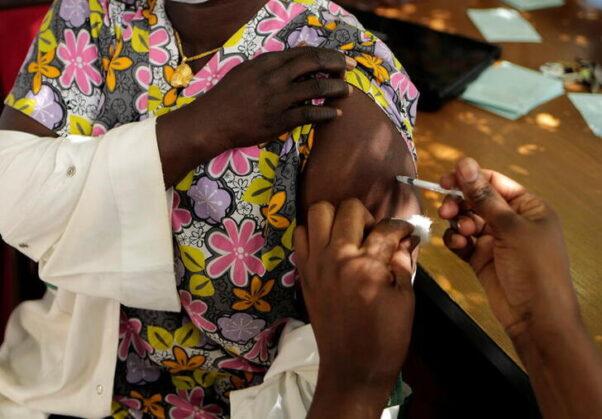Africa-Press – Mauritius. In October 2020, South Africa and India, two powerhouses of generic pharmaceuticals manufacturing in the developing world, made a very broad proposal calling on members of the WTO, to suspend, for a limited time, intellectual property protection for patents, copyrights, industrial designs, and undisclosed information in relation to “the prevention, containment, or treatment of Covid-19 until widespread vaccination is in place globally, and the majority of the world’s population has developed immunity.
The suspension proposal is driven by the fear that developing countries will bear the brunt of the pandemic and will be devastated by it if they do not have rapid access to affordable Covid-19 vaccines, diagnostics and treatment.
The proposal, if approved, will allow pharmaceutical manufactures in developing countries to manufacture Covid-19 products and technologies free of any fears of legal challenges for patent infringement.
This could result in greater availability of the technologies and products, better affordability worldwide, higher rates of vaccination and lower fatalities not just in the developed world but also in the developing world.
However, Big Pharma and many business groups argue that approving the proposal will have an adverse impact on research, development and innovation. There is also the fear that the waiver, if granted, will give China and Russia unimpeded access to advanced western pharmaceutical technologies, and consequently, erode the West’s competitive advantage in this area.
Most African countries support it. President Biden as candidate Biden had said on the campaign trail that he would support the suspension proposal were he elected president. The EU is divided, with Germany firmly opposed and France now in support. Russia has come out in support of the proposal.
Vaccine nationalism in some countries, the appalling situation in India, the gradually rising headcount in many other developing counties, and low numbers of vaccinated in poor countries have gained the proposal additional supporters. But a waiver could make things worse for Africa… First, a waiver will introduce unnecessary uncertainty in the vaccine manufacturing process.
Incumbent manufacturers (Pfizer/BioNtech, Moderna, J&J, AstraZeneca) may cut back on planned production of vaccines in response to the waiver because of uncertainty over the quantity that generic manufacturers may produce and the pricing of the new generics.
This will make it more difficult for African countries, until the generics come on the market, to procure vaccines and Covid-19 therapeutics. A waiver will be no victory for African countries as they do not have the capacities (skills, expertise, plants) to take advantage of it.
Skills and capacities cannot be developed overnight. African countries should not waste precious resources asking for what they cannot use if granted.
The waiver will have the perverse effect of reinforcing Africa’s humiliating dependence on others to solve her problems. The continent has to deal with the dependency syndrome and begin to take the lead in tackling some of her challenges.
The rest of the world must try to wean Africa off long-term dependency. What African countries should do Africa, more than any other continent, needs Big Pharma to continue to invest in research to develop new vaccines and cures for the many diseases that kill Africans.
If Big pharma cuts back on R&D on Africa’s many diseases (and there is at the moment very little of that), many more Africans will die, not from Covid-19 but from other diseases.
The situation in India and the gradually rising weekly headcount in a number of African countries is the consequence of the irresponsibility of political leaders and governments, a disease (political irresponsibility) that a waiver will not cure.
A waiver could lead to lots of counterfeit vaccines on the African market and given the weak food and drug regulatory capacity of African countries, this could be very dangerous not just for Africa but for the rest of the world. These counterfeit Covid-19 vaccines and treatments could present a greater public health risk to Africans than SARS-CoV-2 itself.
African countries should implement the Pharmaceuticals Manufacturing Plan for Africa; they should provide incentives for Big Pharma to set up branches in Africa; they should produce required skills by reforming their higher education sector.
In the long run, it is my view that African countries stand to lose if the South Africa-India proposal is approved by WTO members. For the reasons given above, it is not in the self-interest of African countries to support it.
This is not the time for the usual herd “solidarity with one of our own. ” The main beneficiaries of any waiver will be China, India, and Russia, not poor African countries.
Africa needs Big Pharma to remain innovative. The South Africa-India proposal will not help in this regard; it is an unnecessary distraction and should fail.
For More News And Analysis About Mauritius Follow Africa-Press







